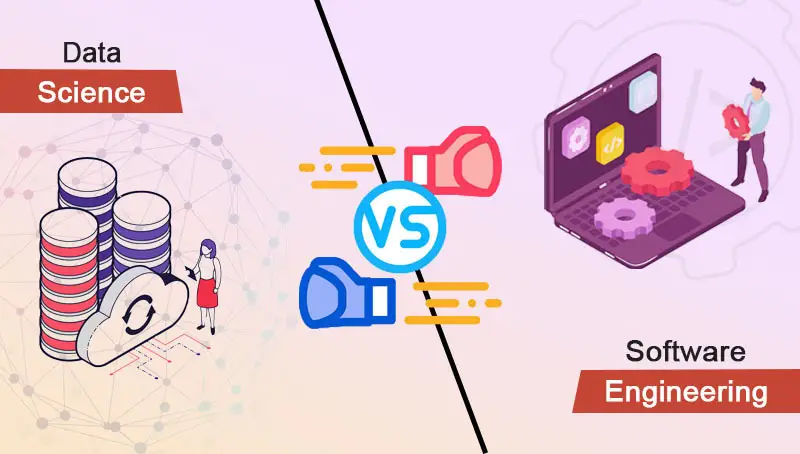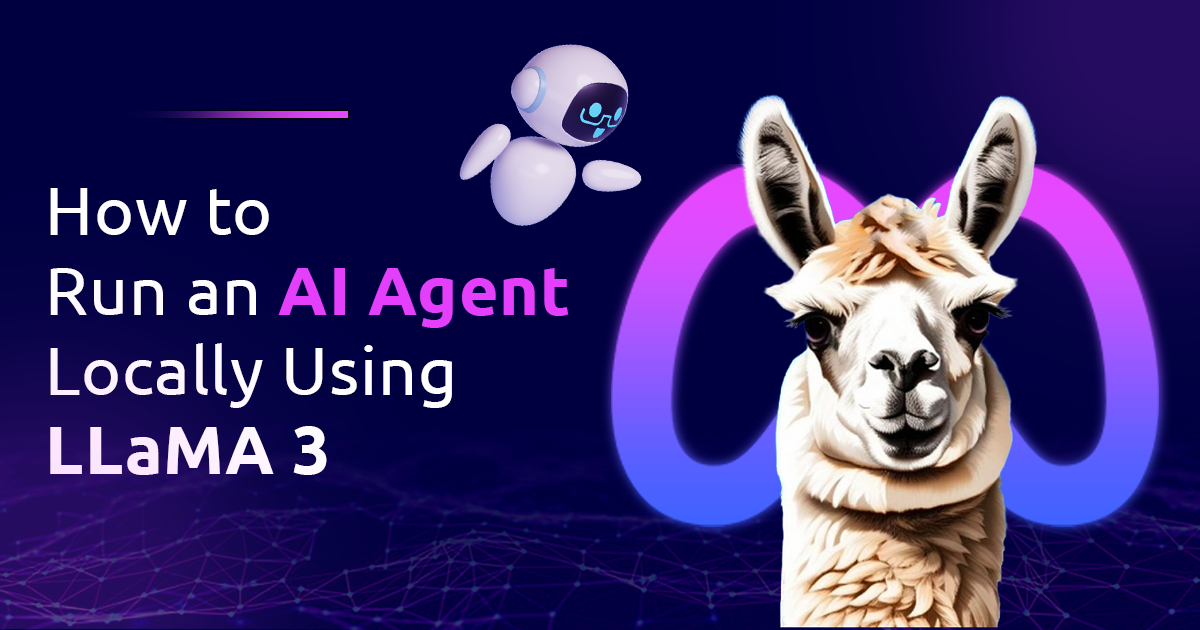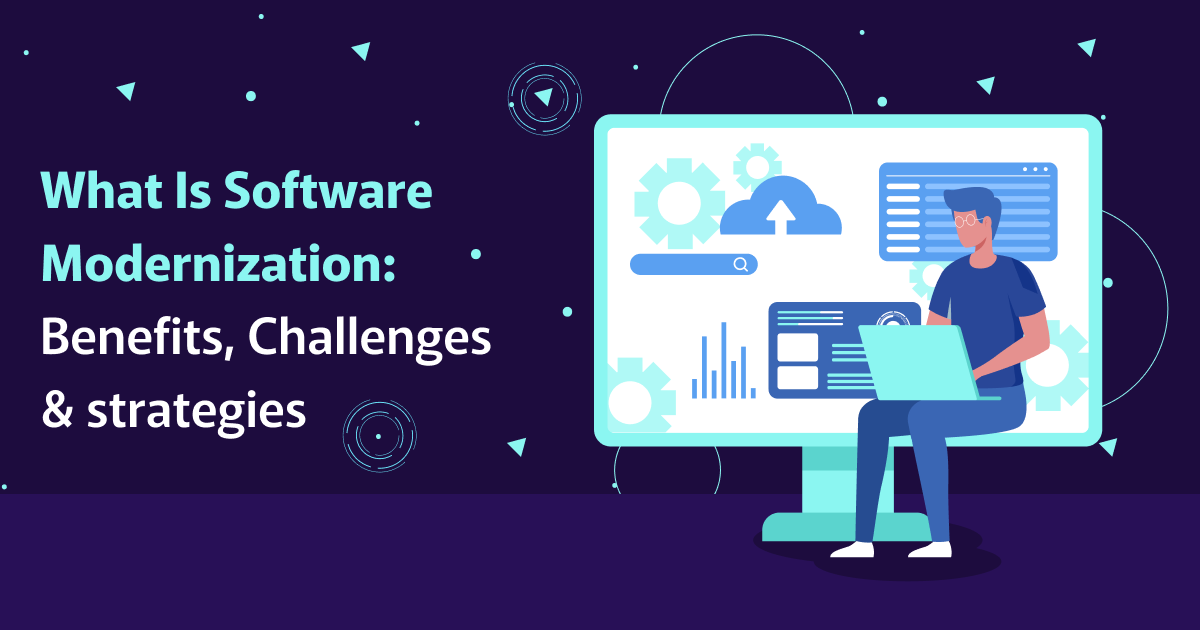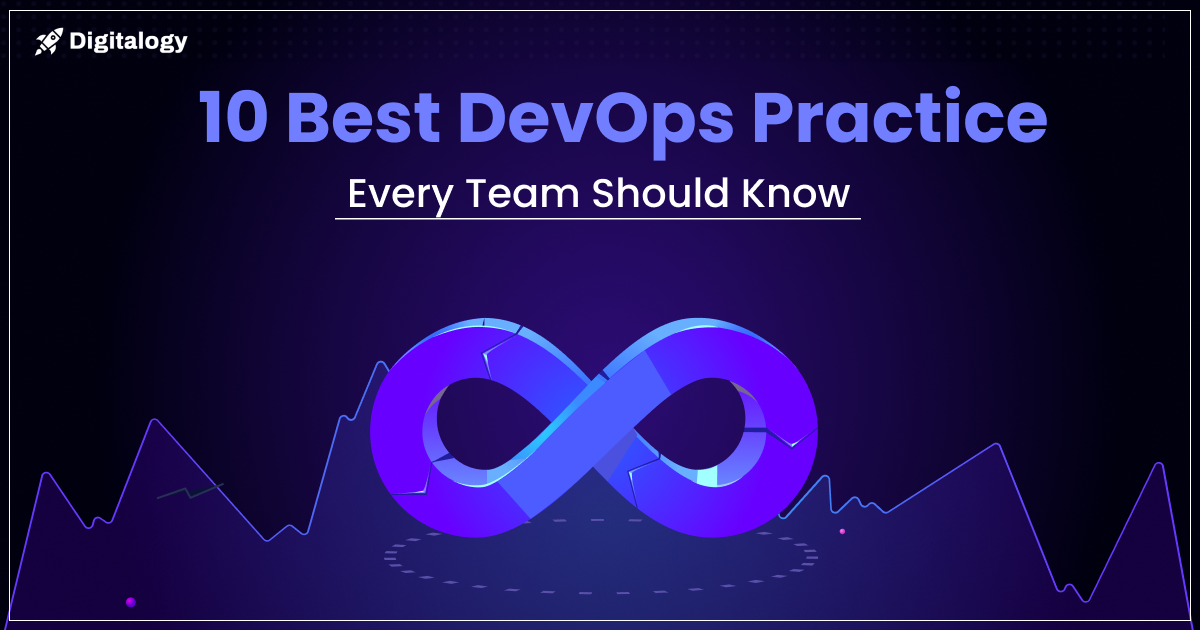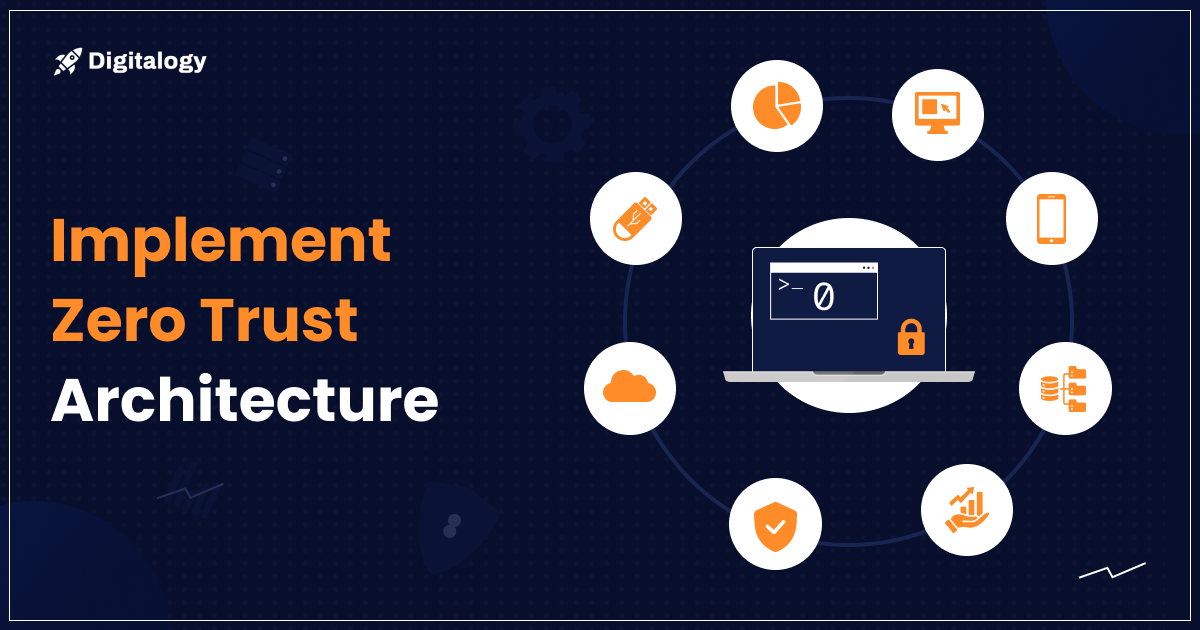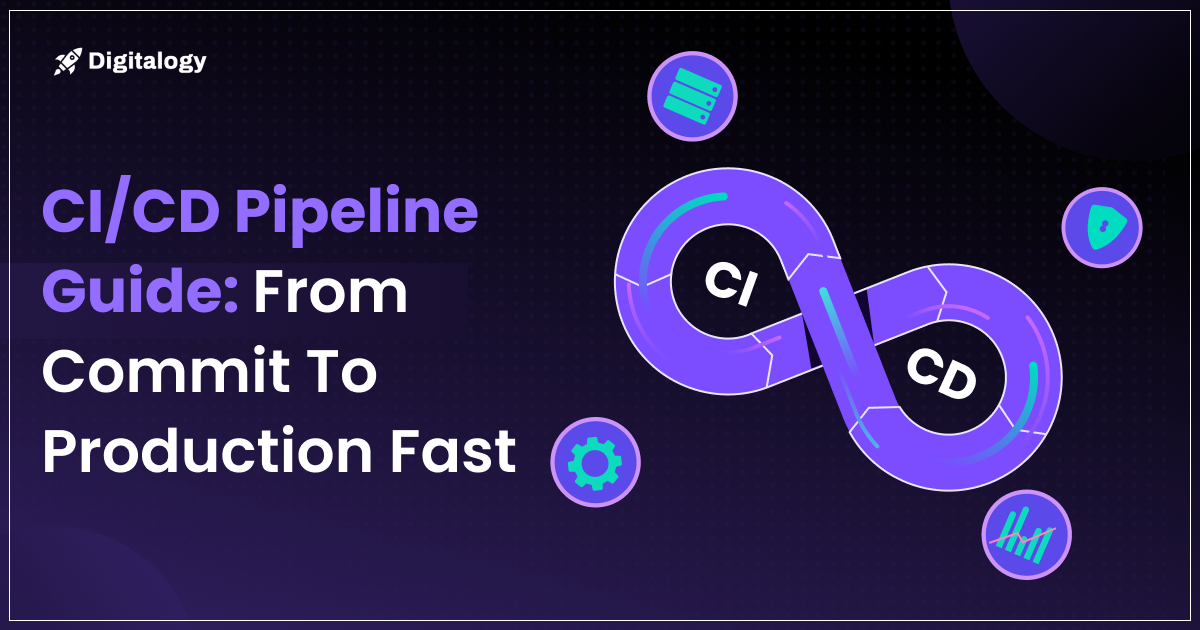In the digital age, two prominent fields that have gained immense recognition are Data Science and Software Engineering. Both these domains play a pivotal role in shaping our modern world, with their influence permeating every aspect of our lives.
We’ll explore the nature of these two fields, the skill sets required, the roles they play in various industries, and how they often collaborate to create innovative solutions.
Before we delve deeper into the differences and synergies between these fields, let’s start by defining each one.
Defining Data Science and Software Engineering
Data Science is a cross-disciplinary domain that melds statistical, computer science, and field-specific expertise to unearth valuable insights and wisdom from data. Data scientists harness an array of tools and methods to acquire, process, scrutinize, and present data, aiding organizations in informed decision-making.
In contrast, Software Engineering principally revolves around the planning, creation, examination, and care of software systems. Software engineers create the software applications and systems that power our devices, websites, and services. They follow established coding standards and best practices to build reliable and efficient software. Now, let’s explore the differences between these two fields.
Key Differences – Data Science vs Software Engineering
| Aspect | Data Science | Software Engineering |
| Focus and Objectives | Extract insights from data and make predictions | Design, develop, and maintain software applications |
| Tools and Technologies | Python, R, Pandas, machine learning libraries | Programming languages (e.g., Java, C++, Python) |
| Job Growth | Data Science has a projected growth rate of 31% from 2020 to 2030 (U.S. Bureau of Labor Statistics) | Software Engineering is expected to grow by 22% from 2020 to 2030 (U.S. Bureau of Labor Statistics) |
| Salaries | Data scientists earn competitive salaries, with a median annual salary of $96,072 in the United States (Payscale) | Software engineers also receive competitive salaries, with a median annual salary of $88,617 in the United States (Payscale) |
| Skills | Data scientists require strong analytical, statistical, and machine-learning skills | Software engineers need strong coding skills, software architecture knowledge, and problem-solving abilities |
| Certifications | Data scientists can pursue certifications like “Certified Data Scientist” (CDS) from the Data Science Council of America (DASCA) | Software engineers can obtain certifications such as “Certified Software Development Professional” (CSDP) from the IEEE Computer Society |
| Industry Applications | Data science is applied in various industries, including finance, healthcare, marketing, and social media for tasks such as predictive analytics and recommendation systems | Software engineering is prevalent in IT, gaming, e-commerce, and mobile app development, encompassing software applications, web development, and system software |
| Educational Background | Data scientists typically hold a bachelor’s degree in fields like computer science, mathematics, or statistics, with many pursuing master’s or Ph.D. degrees in data science | Software engineers have educational backgrounds in computer science, software engineering, or related fields, often with a bachelor’s degree |
| Industry Collaboration | Data scientists often collaborate with domain experts and business analysts to extract valuable insights from data | Software engineers work closely with cross-functional teams, including product managers, designers, and quality assurance teams, to deliver software products |
Data Science vs Software Engineering: Synergies and Overlaps
While Data Science and Software Engineering are distinct fields, they often intersect and collaborate on various projects. Here are some areas of synergy and overlap:
1. Machine Learning in Software Development: Machine learning models developed by data scientists are increasingly integrated into software applications. Software engineers work closely with data scientists to implement these models, ensuring they function correctly within the software. For example, recommendation systems in e-commerce apps and fraud detection algorithms in financial software involve collaboration between data scientists and software engineers.
2. Data Engineering: Data engineering serves as the crucial link connecting Data Science and Software Engineering. Data engineers undertake the tasks of constructing and upholding data pipelines, managing data storage systems, and executing data transformation processes. They ensure that data is readily available for data scientists to work with and that software applications can consume and display the results of data analysis.
3. Data Visualization: Data visualization is essential in both Data Science and Software Engineering. Data scientists use visualization tools to communicate their findings, while software engineers often develop dashboards and user interfaces that present data to end-users. This collaborative endeavour guarantees that data-driven insights are made available and comprehensible to a wider audience.
4. Continuous Integration and Deployment (CI/CD): In modern software development, CI/CD practices are crucial for delivering reliable and up-to-date software. CI/CD pipelines can be advantageous for both data scientists and software engineers. Data scientists use them to automate model deployment, while software engineers use them to ensure the consistent and efficient delivery of software updates.
5. Cross-Disciplinary Teams: In many organizations, cross-disciplinary teams combine the skills of data scientists and software engineers. These teams work on projects that require both data analysis and software development, ensuring that data-driven applications are not only accurate but also seamlessly integrated into existing software systems.
6. Open Source Collaboration: Open source software and libraries are widely used in both Data Science and Software Engineering. Many projects are developed collaboratively, with contributions from professionals in both fields. For example, open-source machine learning frameworks like TensorFlow and sci-kit-learn are developed by a community of data scientists and software engineers.
Data Science vs Software Engineering: Career Paths and Opportunities
Both Data Science and Software Engineering offer promising career paths with ample opportunities for growth and specialization. Now, let’s examine the career opportunities in each domain.
Career Paths in Data Science
1. Data Scientist: Data scientists shoulder the responsibility of gathering, refining, and scrutinizing data to extract actionable insights. They create predictive models, perform statistical analysis, and develop data-driven solutions.
2. Machine Learning Engineer: The creation and application of machine learning models are the focus of machine learning engineers. They work on optimizing models for production use and ensuring their scalability and performance.
3. Data Analyst: Data analysts primarily focus on data visualization and reporting. They use data to answer specific business questions and create reports and dashboards for decision-makers.
4. Data Engineer: Data engineers have expertise in constructing and sustaining data infrastructure. They design data pipelines, databases, and ETL (Extract, Transform, Load) processes to ensure data is available and accessible for analysis.
5. Business Intelligence Analyst: BI analysts concentrate on delivering insights that have the potential to influence business decisions. They work with data visualization tools and use data to help organizations make informed choices.
Career Paths in Software Engineering
1. Software Developer: Software developers design and build software applications, including web and mobile apps, desktop software, and system software. They use a range of frameworks and programming languages to function.
2. Front-End Developer: Front-end developers specialize in crafting user interfaces for web and mobile applications. They use HTML, CSS, and JavaScript to ensure a user-friendly experience.
3. Back-End Developer: Back-end developers are tasked with working on the server side of applications, where they manage data storage, processing, and server communication. They use technologies like databases, APIs, and server frameworks.
4. Full-Stack Developer: Full-stack developers have expertise in both front-end and back-end development, making them versatile in building entire software systems.
5. DevOps Engineer: DevOps engineers focus on automation, continuous integration, and continuous deployment. They ensure the smooth and efficient development, testing, and deployment of software.
Synergistic Career Paths
1. Data Engineer: Data engineers hold a vital role in both domains as they are responsible for the development and upkeep of data infrastructure. They work on data pipelines, which are essential for data scientists, and also collaborate with software engineers on projects that require robust data storage and retrieval systems.
2. Machine Learning Operations (MLOps) Engineer: MLOps engineers act as a link between data science and software engineering, concentrating on the deployment and maintenance of machine learning models within production systems.
3. Product Manager: Product managers work at the intersection of data science and software engineering to define the scope, features, and objectives of software products. They collaborate with both data scientists and software engineers to create products that meet business and user needs.
Data Science vs Software Engineering: Educational Background and Skills
To pursue a career in Data Science or Software Engineering, individuals typically need specific educational backgrounds and skill sets.
Educational Background – Data Science
Getting a bachelor’s degree in a relevant discipline, such as computer science, mathematics, or statistics, is usually the first step toward starting a career in data science. Nonetheless, it’s noteworthy that a significant number of data scientists further their education by obtaining master’s or Ph.D. degrees in data science or a closely related discipline.-
Educational Background – Software Engineering
Software engineers typically have a bachelor’s degree in computer science, software engineering, or a closely related discipline as part of their foundational education. It’s common for software engineers to supplement this academic foundation with formal training in programming and software development.
Data Science vs Software Engineering: Skills
Data Science
- Proficient knowledge of programming languages such as R and Python.
- Strong analytical and statistical skills.
- Data cleansing and manipulation, often employing libraries such as Pandas.
- Machine learning expertise and knowledge of relevant libraries (e.g., sci-kit-learn, TensorFlow, PyTorch).
- Data visualization skills with tools like Matplotlib and Tableau.
Software Engineering
- Proficiency in programming languages relevant to the field (e.g., Java, C++, Python, JavaScript).
- Data structures and algorithms expertise.
- Software architecture and design skills.
- Familiarity with version control systems (e.g., Git).
- Problem-solving and debugging abilities.
Data Science vs Software Engineering: Certifications and Continuous Learning
Both domains prioritize ongoing learning and the advancement of professional expertise. Data scientists can benefit from certifications like the “Certified Data Scientist” (CDS) offered by the Data Science Council of America (DASCA).
Software engineers can pursue certifications such as “Certified Software Development Professional” (CSDP) from the IEEE Computer Society. Additionally, online courses, workshops, and tutorials are readily available for individuals looking to upskill or explore new areas of expertise in both Data Science and Software Engineering.
Conclusion
In the dynamic landscape of technology and data-driven decision-making, Data Science and Software Engineering are two essential domains, each with its unique strengths and applications. Individuals interested in these fields should carefully consider their career goals, educational background, and skill sets to choose the path that aligns best with their interests and aspirations.
Whether you find your calling in Data Science, Software Engineering, or a career that straddles both worlds, the opportunities for growth and impact are substantial, making both fields incredibly rewarding and exciting choices.

